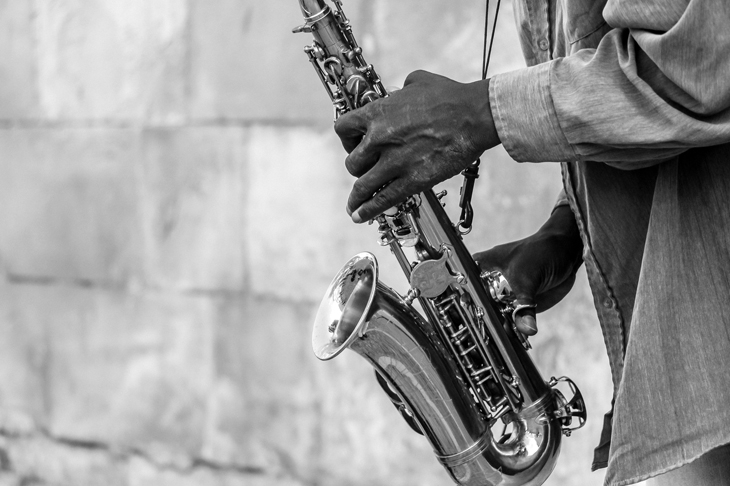The title might be taken as a provocation. In the compressed language of digital media, white tears, like first-world problems or man flu, are an ersatz version of the real thing. More plainly, the gripes and complaints of white people are, according to certain social codes, unearned and
inauthentic.
This zeitgeisty novel gives us two men who are preoccupied to the point of mania by the question of authenticity: young white New Yorkers obsessed with the blues. They work as music producers, but this being the post-pop 21st century they are stuck with white novelty rappers. Carter, the richer of the two, prefers old black music, the more ancient-sounding the better. To his ears, the earliest stuff is ‘more intense and authentic than anything made by white people’. That is until Seth, Carter’s shy protégé, takes to exploring the city with a portable recorder and inadvertently catches a black man singing in Washington Square.
With this recording, scarcity — which, in the underworld of blues collectors, trumps everything — is guaranteed at the source. There is only one copy, and they have it. Better yet, by adding to a dead tradition, these white appreciators, with their ‘disabling caucasity’, can become bona fide contributors. So they give the unknown singer the name Charlie Shaw, add some hiss and crackle to the recording, call the song ‘Graveyard Blues’, and send it out into the web for a few dozen blues hounds to inspect. ‘These fuckers think this music was made in 1928, but actually we made it,’ says Carter. ‘So who’s the expert now? Who knows the tradition? We do! We own that shit!’
Very quickly a collector makes himself known and claims to have heard of Charlie Shaw. He also wants to know what’s on the other side of the record. There is no other side, of course, and Charlie Shaw does not exist.
There are surprises and reversals later on in the novel, but for the most part Kunzru turns away from the entanglements that he invokes in the first half. The action is placed in a context where identity politics are present but muted, so the themes can’t be prematurely detonated by the more typical anxieties that might plague contemporary Brooklynites. It’s hard to believe that the characters, given their milieu, are not more forcefully aware that their cultural appropriation is, like, totally problematic.
But for Kunzru realism is merely a trapdoor, so he has people behaving approximately like people for 100 pages or so, before bringing out the zombiefied bluesmen, out-of-nowhere James Ellroy-style police interrogations, and a strange meshing of personalities (the first-person narrative voice becomes more and more indistinct and diffuse). Carter falls by the wayside and Seth — quiet, tentative Seth — is punished in various spiteful ways, making the novel feel both like a racial revenge fantasia and a stern lesson in radical empathy. And yes, this has a certain mad appeal, from a distance, but to read the novel is to see an ingenious premise being twisted out of shape.






Comments